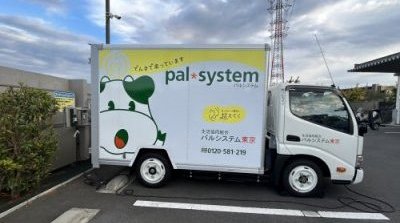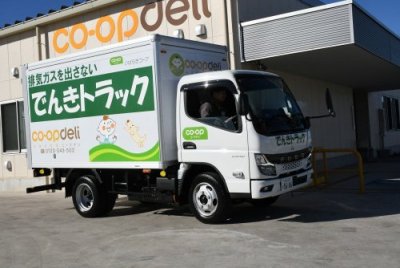Point
✓From a target of "40% reduction in CO2 emissions by 2030 compared to FY2013", to "a reduction of over 50%"
✓Advance calculation of Supply-chain Emissions and setting targets at levels well below 2°C
As a result, the 2030 target will be changed from "40% reduction in CO2 emissions compared to FY2013" to "a reduction of more than 50%", while the 2050 target will change from "90% reduction" to "achieving net-zero (virtually zero) CO2 emissions".
Furthermore, JCCU will collaborate with Consumer Co-ops nationwide to calculate supply chain emissions, encompassing the total emissions associated with co-op business activities. This includes both direct emissions from the co-ops and indirect emissions from their operations, while setting future targets to ensure that the rise in global temperature remains well below 2 degrees Celsius compared to pre-industrial levels, as outlined in the 2015 Paris Agreement.
Consumer Co-ops have demonstrated a strong interest in energy issues closely related to consumers' lives and have been systematically addressing global warming since 2004. Since the 2010s, Consumer Co-ops have set CO2 emission reduction targets and have actively worked to decrease emissions in their business operations through energy conservation and the use of renewable energy.
The issue of climate change is intensifying, with average temperatures continuing to rise. Extreme weather and droughts are occurring, affecting natural environments and people's lives in many parts of the world. At the G7 Summit in Hiroshima, UN Secretary-General António Guterres stated, "The era of global warming has ended; the era of global boiling has arrived." To limit the rise in average temperatures to 1.5°C, it is essential for nations, businesses, civil society, and each individual to engage in climate change mitigation efforts.
Consumer co-ops are cooperative organizations operated by consumers to realize their common aspirations. Guided by the philosophy of " Creating a more human lifestyle and sustainable society," they engage in businesses and activities that prioritize local communities and the global environment. In order to fulfill their responsibilities as business operators and work towards creating a sustainable society alongside consumers, Co-ops will review their greenhouse gas reduction targets as follows:
*The 2030 and 2050 targets primarily fall under the Greenhouse Gas (GHG) emissions in Scope 1 (direct emissions from companies) and Scope 2 (indirect emissions from energy purchases such as electricity, heat, and steam). Additionally, some aspects of Scope 3 (GHG emissions during the procurement of raw materials and throughout the supply chain, as well as post-sales emissions) are also included.
*The supply chain emissions are assumed to fall under Scope 3. Scope 3 refers to GHG emissions, other than Scope 1 and Scope 2, that are related to activities in which a company is not directly involved.
Achieving these targets will not be easy, as the development of social systems and technological innovation is considered essential. In light of these ambitious goals, there is a strong focus on actively developing and utilizing renewable energy. Additionally, promoting the introduction of Electric Vehicle (EV) trucks aims to further reduce emissions. The proliferation of next-generation trucks running on alternative energy sources such as electricity and hydrogen is anticipated. This includes the advancement of perovskite solar cells, known for their thin, lightweight, and flexible nature compared to traditional silicon-based cells. Furthermore, efforts to address supply chain emissions for future target setting will be enhanced through collaboration with various stakeholders, including business partners and Co-op members.
Examples of EV Truck Introductions in Member Co-ops:
Currently, more than five consumer co-ops have gradually begun to introduce EV trucks.
Pal System Tokyo Pal System Kanagawa
Ibaraki Co-op Co-op Aichi
JCCU, in collaboration with consumer co-ops nationwide, is dedicated to achieving a decarbonized society by implementing the "2030 Vision of Japanese Consumer Co-ops": "Creating the Future with the Power of Connections."
tags: 2030 Environmental Sustainability Policy, greenhouse gas emissions, sustainability





